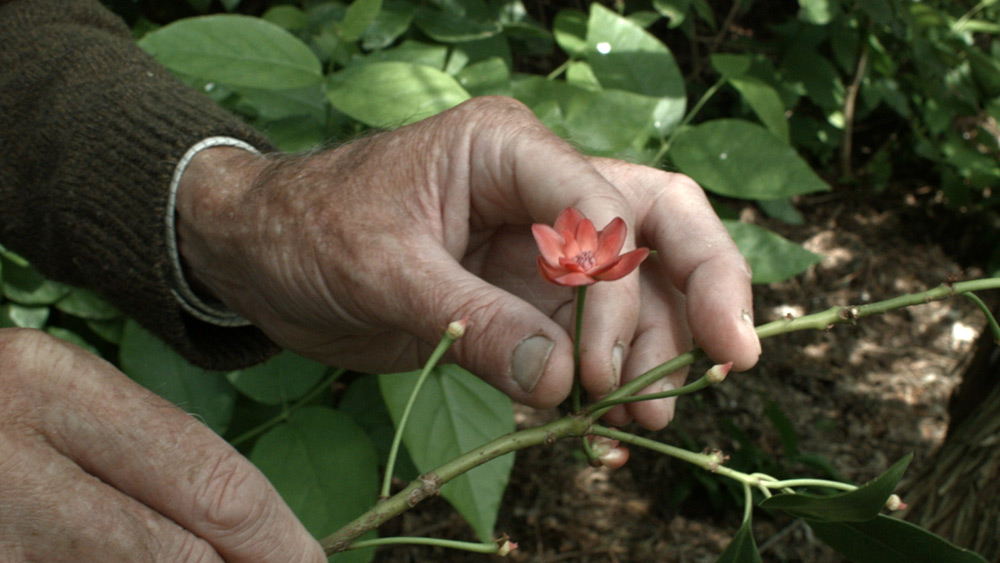In the first part of 7 Walks with Mark Brown (2024), the latest full-length film by Pierre Creton and Vincent Barré, the directors and their small film crew wander through the French countryside with botanist Mark Brown. Brown monologues about ancient plants that the crew observes. Then, he guides them through his own recreation of a prehistoric forest, which he calls “The Dawn of Flowers.” During these walks, we see the film’s cinematographer use his 16mm camera to shoot flowers, trees, and ferns. This footage forms the second part of the film, in which we see static shots of wildlife accompanied by a discussion that took place between Creton and Brown, where they do little more than identify the different flowers shown: what species they belong to and where they can be found in the world.
For those who liked Creton’s previous effort, A Prince (2023), but were hesitant about the more conventional approach to storytelling it assumed relative to the rest of his films, 7 Walks with Mark Brown will prove reassuring. Here, Creton and Barré return to their habit of doing everything that is usually avoided in mainstream cinema. They mix digital and analog film; they preserve the hiccups in their voice-over; they often show the same thing twice. But those beginner’s mistakes are, of course, the salt of their work and the unfocused footage that proved less essential in A Prince constitutes the heart of their new film.
In 7 Walks with Mark Brown, it is not only a film crew that wanders through Normandy’s countryside, but a group of friends, almost a family. The film’s unfocused quality lends it the incomparable charm of a home movie. Add to that the fact that the cinematographer, Antoine Pirotte, was also the main actor in A Prince and that, from their interactions, it’s clear that Brown and Creton know each other well. The walks and the filmmaking in 7 Walks with Mark Brown almost seem like excuses for its makers to chat, eat, and drink together. Their naps on the side of the road become as important as their main hike. When some characters start to talk about the beauty of a wheat field before them, Brown gets emotional, recalling a long lost love story that becomes the real subject of discussion among the group.
As in most of Creton’s films, the birds and the bees are to be taken literally; nature, flora, and fauna are regarded as the point of origin from which all relationships, discourse, and actions stem. Creton and Barré do not create a fantasy of an unchanging, sublime wilderness, but instead attempt to picture how nature relates to us: how we are a part of it and how we are, also, separate from it. There’s no need for Brown to lecture the viewer about the fragility of the human race in relation to the unbending serenity of nature. All he has to do is murmur that a plant has existed for “a hundred million years” to make us grasp how fragile and trivial our existence is compared to that of most life on Earth. This might also be precisely why Creton and Barré are so uninterested in professionalism: because it is unsustainable.
7 Walks with Mark Brown screens this afternoon, June 22, and through June 26, at BAM as part of the series Erotic Nature: The Films of Pierre Creton & Vincent Barré.



